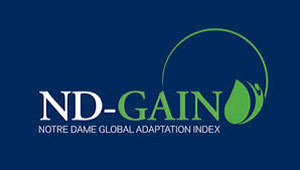
The University of Notre Dame’s Global Adaptation Index is joining a team of researchers who, with National Science Foundation (NSF) backing, will look at innovative ways of making urban infrastructure more resilient and equitable.
Extreme weather events can cripple crucial infrastructure that enables transit, electricity, water and other services in urban areas. This leaves cities and their citizens cut off and in danger. With weather extremes becoming more common — from devastating hurricanes and flooding to record drought and heat waves — it will be increasingly important to develop infrastructure in different, more sustainable ways.
That is the idea behind a new Urban Resilience to Extreme Weather-Related Events Sustainability Research Network (UREx SRN), recently funded by NSF.
ND-GAIN joins a team led by Arizona State University researchers to participate in the five-year, $12 million Sustainability Research Networks program focusing on urban sustainability.
“Extreme events present a great challenge to global sustainability, and urban areas are particularly vulnerable to these events, often due to their location, interdependent infrastructure and people concentration,” Georgia Kosmopoulou, NSF program director in economics, said. “This SRN team will develop — through a novel, more holistic approach — methods and tools to assess how infrastructure can become more resilient providing ecosystem services in an effort to improve social well-being. The geographical breadth of the proposal is an advantage; cities that represent alternative cultural backgrounds can offer new ideas about socio-ecological-technological infrastructure.”
“The team’s holistic approach to urban infrastructure, evaluating the social, ecological and technical systems related to infrastructure, draws on ND-GAIN’s strengths and helps us to further focus on our efforts to save lives and improve livelihoods,” Joyce Coffee, ND-GAIN’s managing director, said. “The project complements our Urban Adaptation Assessment work and allows us to leverage existing resources to maximize our impact in the U.S.”
Contact: Joyce Coffee, 574-807-9322, jcoffee@nd.edu